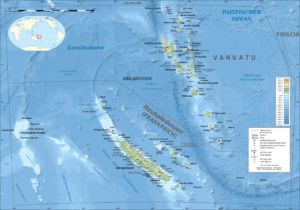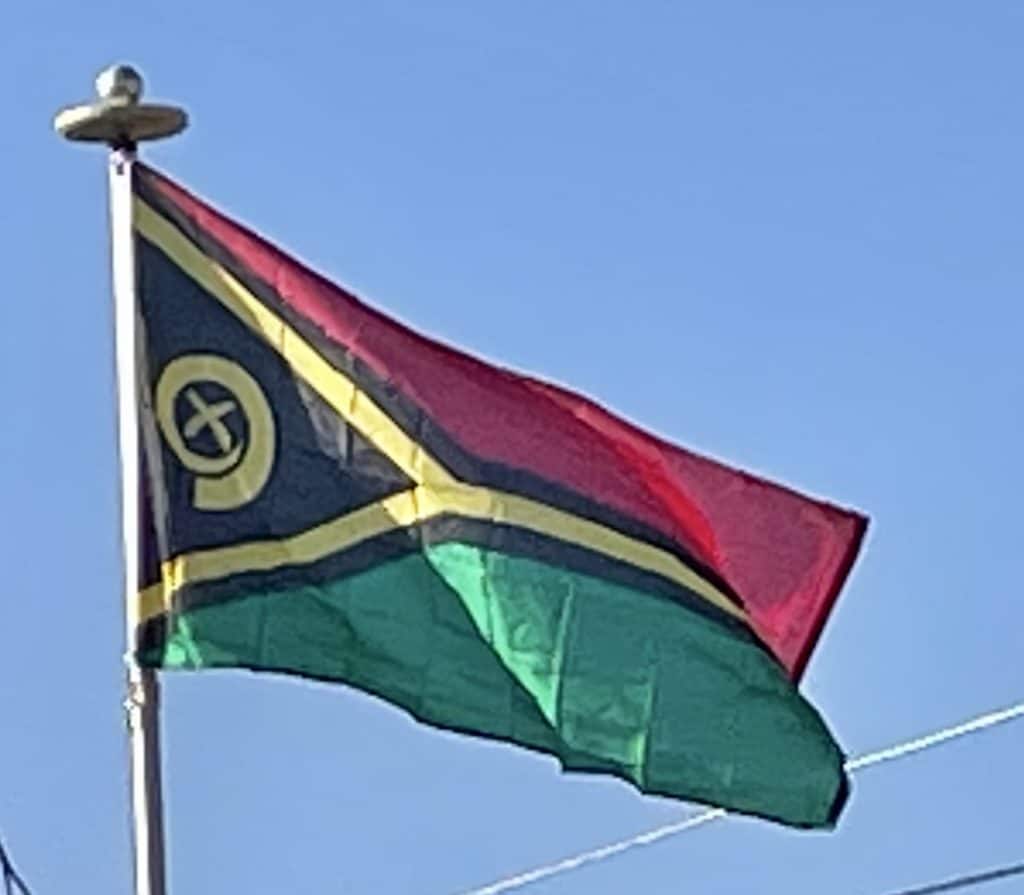
Vanuatu’s population (estimated in 2008 as growing 2.4% annually) is placing increasing pressure on land and resources for agriculture, grazing, hunting, and fishing. 90% of Vanuatu households fish and consume fish, which has caused intense fishing pressure near villages and the depletion of near-shore fish species. While well-vegetated, most islands show signs of deforestation. The islands have been logged, particularly of high-value timber, subjected to wide-scale slash-and-burn agriculture, and converted to coconut plantations and cattle ranches, and now show evidence of increased soil erosion and landslides.
Many upland watersheds are being deforested and degraded, and fresh water is becoming increasingly scarce. Proper waste disposal, as well as water and air pollution, are becoming troublesome issues around urban areas and large villages. Additionally, the lack of employment opportunities in industry and inaccessibility to markets have combined to lock rural families into a subsistence or self-reliance mode, putting tremendous pressure on local ecosystems.
Economy:
The four mainstays of the economy are agriculture, tourism, offshore financial services, and raising cattle.
There is substantial fishing activity, although this industry does not bring in much foreign exchange. Exports include copra, kava, beef, cocoa and timber; and imports include machinery and equipment, foodstuffs, and fuels. In contrast, mining activity is very low.

Although manganese mining halted in 1978, there was an agreement in 2006 to export manganese already mined but not yet exported. The country has no known petroleum deposits. A small light-industry sector caters to the local market. Tax revenues come mainly from import duties and a 15% VAT on goods and services. Economic development is hindered by dependence on relatively few commodity exports, vulnerability to natural disasters, and long distances between constituent islands and from main markets.
Agriculture is used for consumption as well as for export. It provides a living for 65% of the population. In particular, production of copra and kava create substantial revenue. Many farmers have been abandoning cultivation of food crops, and use earnings from kava cultivation to buy food. Kava has also been used in ceremonial exchanges between clans and villages. Cocoa is also grown for foreign exchange.
In 2007, the number of households engaged in fishing was 15,758, mainly for consumption (99%), and the average number of fishing trips was 3 per week. The tropical climate enables growing of a wide range of fruits and vegetables and spices, including banana, garlic, cabbage, peanuts, pineapples, sugarcane, taro, yams, watermelons, leaf spices, carrots, radishes, eggplants, vanilla (both green and cured), pepper, cucumber and many others.
Tourism brings in much-needed foreign exchange. Vanuatu is widely recognized as one of the premier vacation destinations for scuba divers wishing to explore coral reefs of the South Pacific region. A further significant attraction to scuba divers is the wreck of the US ocean liner and converted troop carrier SS President Coolidge on Espiritu Santo island. Sunk during World War II, it is one of the largest shipwrecks in the world that is accessible for recreational diving. Tourism increased 17% from 2007 to 2008 to reach 196,134 arrivals, according to one estimate. The 2008 total is a sharp increase from 2000, in which there were only 57,000 visitors (of these, 37,000 were from Australia, 8,000 from New Zealand, 6,000 from New Caledonia, 3,000 from Europe, 1,000 from North America, 1,000 from Japan. Tourism has been promoted, in part, by Vanuatu being the site of several reality-TV shows. The ninth season of the reality TV series Survivor was filmed on Vanuatu, entitled Survivor: Vanuatu—Islands of Fire. Two years later, Australia’s Celebrity Survivor was filmed at the same location used by the US version. In mid-2002, the government stepped up efforts to boost tourism.
